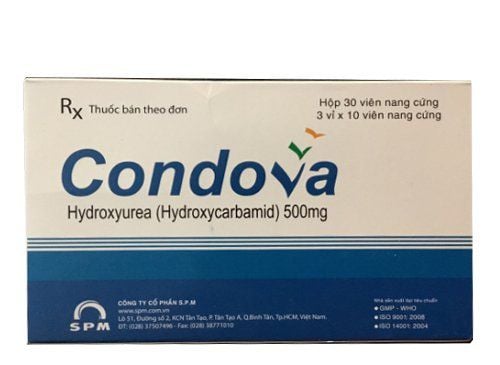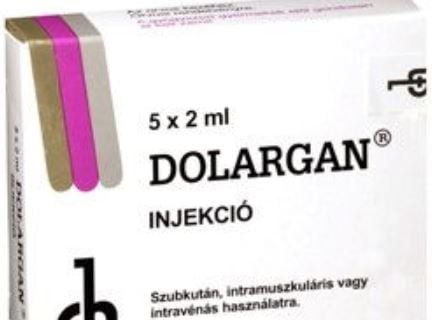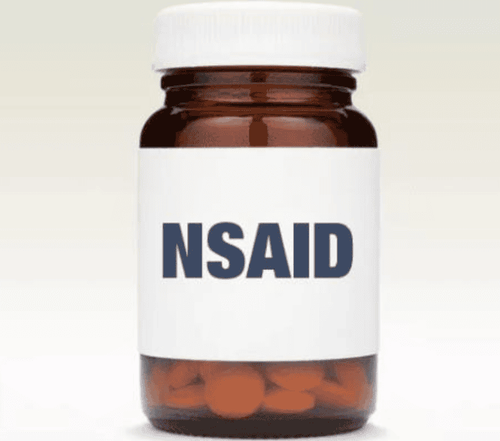This is an automatically translated article.
Pethidine, also known as Pethidine hydrochloride, is a synthetic central opioid analgesic, indicated for use in moderate to severe pain. The drug has addictive properties similar to morphine, so when used, it is necessary to follow the instructions in the prescription and not to abuse it.1. What is pethidine?
Pethidine, also known as Pethidine hydrochloride, is a synthetic central pain reliever of the opioid group (with addiction). Pethidine is indicated for the relief of moderate to severe pain. This drug has addictive properties similar to morphine, but compared to morphine, Pethidine has a faster effect but shorter duration of action. Drugs in addition to oral administration are also used by injection to support preoperative anesthesia and postoperative pain relief.
Pethidine medicine is prepared in many forms to suit each purpose of use:
Tablets: Pethidine medicine 50mg and 100mg Solution for injection: 100mg/ml, 75mg/ml, 50mg/ml, 25mg/ml Solution Oral: 10mg/ml, 50mg/ml,
2. The effect of the drug Pethidine
What is the use of Pethidine? Pethidine Hydrochloride is a fast-acting opioid (narcotic) reliever that is commonly used for anesthesia in invasive surgery, postoperative analgesia, and general pain relief.
In addition, Pethidine is also used for severe pain that non-narcotic analgesics are ineffective such as renal and ureteral colic, pulmonary edema, cardiac asthma, tumors,...
Although Pethidine drug Pethidine Hydrochloride has narcotic and analgesic properties but compared to morphine, Pethidine Hydrochloride has a faster effect but has a shorter duration of effect. Therefore, the drug Pethidine is often used for moderate to severe pain or
3. Indications and contraindications to the drug Pethidine
3.1 Indication The drug belongs to the list of narcotic pain relievers and is often used for cases such as:
Severe pain when non-narcotic analgesics do not work. Use anesthesia before surgery. Support for pain relief after surgery Reduce pain in some other cases that cannot be controlled by mild pain relievers such as biliary colic, renal and ureteral colic,... 3.2 Contraindications Pethidine Hydrochloride is contraindicated Determined for specific cases such as:
People who are hypersensitive to the ingredients in the drug formula People with respiratory failure Increased intracranial pressure Bronchial asthma Acute alcoholics Although there are no reports on the harmful effects of the drug for pregnant and lactating women, but to ensure safety, before use should consult a specialist.
4. How to use Pethidine?
Pethidine Hydrochloride is prepared in 2 forms: oral tablet, oral solution and injection solution. Each form of drug has different uses and indications.
Oral medicine: Only used for acute pain that does not last long. Note that when drinking the solution, you should drink a lot of water, because if the solution is not diluted, it can cause damage to the body and paralysis of the oral mucosa. Injections: are injected directly into a vein or muscle. To ensure safety, before injection, it is necessary to dilute the drug solution and inject it slowly. It is necessary to have an antidote and oxygen tank ready in case of unexpected bad situations. Pethidine injection must be performed by qualified medical personnel, not self-administered at home or in unqualified and qualified facilities.
5. Dosage of Pethidine
With each case as well as age, the doctor will specify the appropriate dose. Below is the usual dosage for users' reference:
Adults:
Acute and severe pain relief: 50 - 150mg/time, 4 hours apart each time. Moderate and severe pain control: Intramuscular or subcutaneous injection: 25-100mg/time, 25-50mg intravenously/time. Postpartum pain relief: Inject 50-100mg/time, if after 1-3h, pain can be injected more. Do not use more than 400mg/day. Anesthesia before surgery: Inject 50-100mg and inject 1 hour before the procedure. Dosage for pain relief after surgery: 10-25mg slow intravenous injection, not more than 25mg/day Children:
Moderate and severe pain relief: 0.5-2mg/total body weight/time Indicated intramuscularly with a concentration of 0.5-2mg/kg. Anesthesia and analgesia before surgery: Intramuscular 1-2 mg/total body weight/time and injected 1 hour before surgery. After surgery: the doctor will appoint separately.
6. Notes when using the drug Pethidine Hydrochloride
Pethidine Hydrochloride is a narcotic pain reliever. Therefore, it should be used with caution and not abused.
Some things to keep in mind when taking Pethidine Hydrochloride are as follows:
Be careful when using high doses for a long time, because it can cause the body to become dependent on the drug and cause addiction. Especially if continuously used high doses can lead to death. When using Pethidine Hydrochloride, absolutely do not participate in traffic or work that requires high alertness and concentration because the drug reduces the ability to stay awake and concentrate. Use with caution in pregnant and lactating women, it is best to consult a specialist carefully. Do not give medicine to children
7. Pethidine side effects
Some side effects when using Pethidine Hydrochloride are:
Nausea, headache, dizziness, dizziness. Constipation, defecation, digestive disorders. Anorexia, not eating well. Slow heartbeat, arrhythmia. Rash, pruritus, urticaria. Appears hallucinations, excitement, hot flashes. Sudden drop in blood pressure.
8. Drug interactions
When co-administering Pethidine with some other drugs may interact with each other such as:
MAO inhibitors: causing coma, sudden hypoglycemia, severe respiratory depression, Scopolamine, barbiturates: increasing the toxicity of the drug. . Fuaolidon: causes high fever, convulsions and coma. Therefore, to avoid drug interactions, before using you need to immediately inform your doctor about the drugs you are taking or actively learn about drug interactions.
9. How to handle under or overdose
Pethidine Hydrochloride is a brand-name drug that is strictly controlled during use, so missing a dose is rare. However, if in case of lack of dose, depending on the condition of each person, the doctor will prescribe an appropriate supplement or replace it with another similar drug.
On the contrary, if overdose, the doctor will prescribe detoxification with naloxone. Any situation can happen, so being careful and using exactly as directed by your doctor is the safest way.
In summary, Pethidine, also known as Pethidine hydrochloride, is a synthetic central opioid analgesic, indicated for use with moderate and severe pain. The drug has addictive properties similar to morphine, so when used, it is necessary to follow the instructions in the prescription and not abuse it.
Follow Vinmec International General Hospital website to get more health, nutrition and beauty information to protect the health of yourself and your loved ones in your family.
Please dial HOTLINE for more information or register for an appointment HERE. Download MyVinmec app to make appointments faster and to manage your bookings easily.













